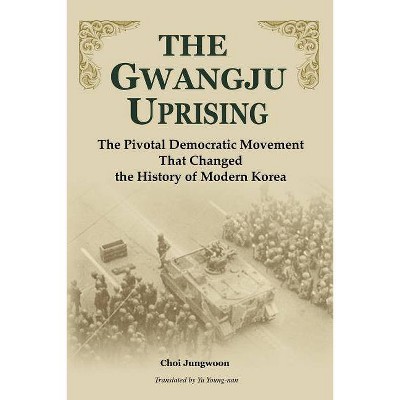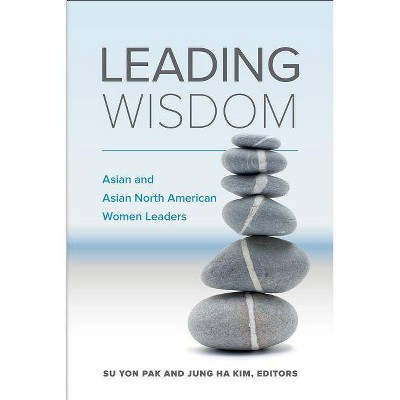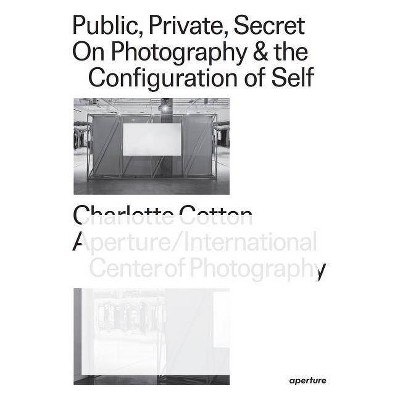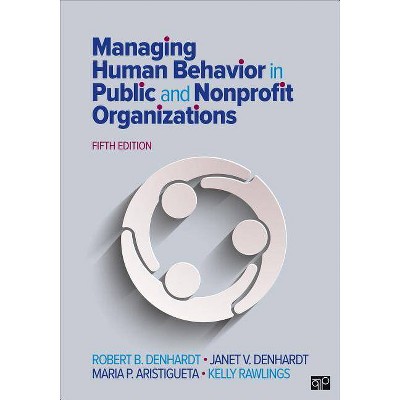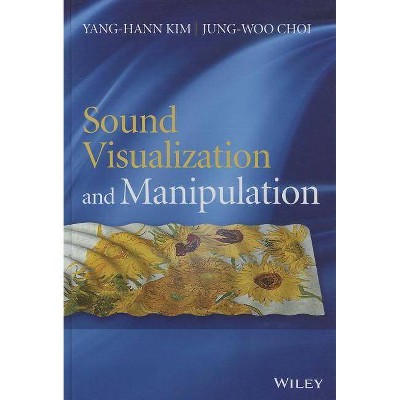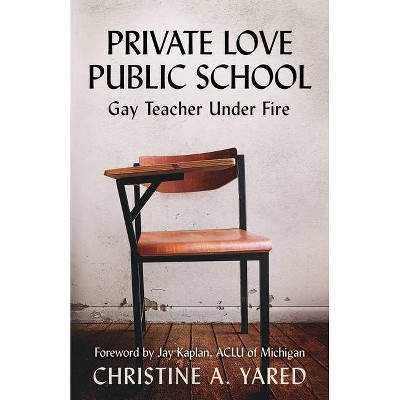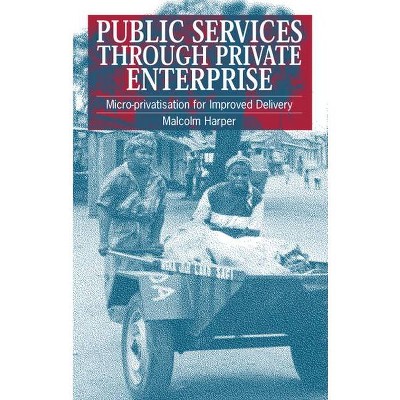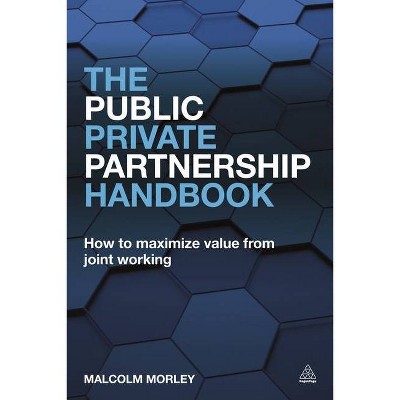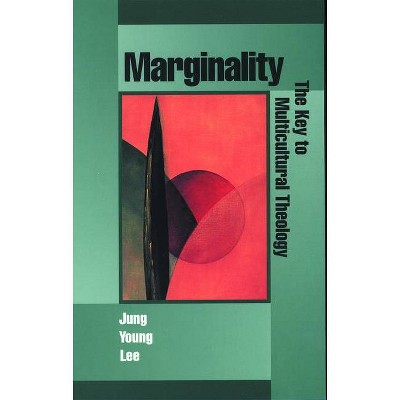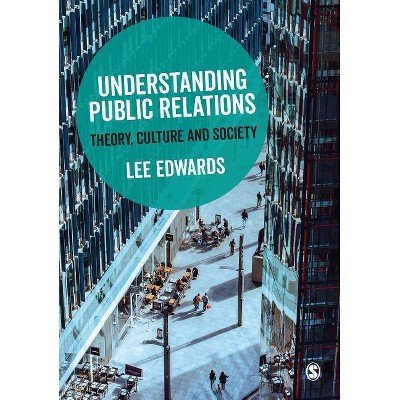Public Policymaking by Private Organizations - by Catherine E Rudder & A Lee Fritschler & Yon Jung Choi (Paperback)
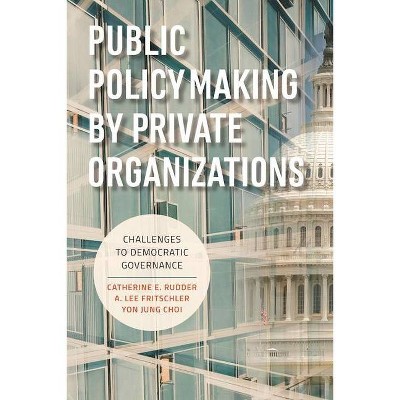
Similar Products
Products of same category from the store
AllProduct info
<p/><br></br><p><b> About the Book </b></p></br></br>"How private groups increasingly set public policy and regulate lives-with little public knowledge or attention. From accrediting doctors and lawyers to setting industry and professional standards, private groups establish many of the public policies in today's advanced societies. Yet this important role of nongovernmental groups is largely ignored by those who study, teach, or report on public policy issues. Public Policymaking by Private Organizations sheds light on policymaking by private groups, which are not accountable to the general public or, often, even to governments. This book brings to life the hidden world of policymaking by providing an overview of this phenomenon and in-depth case studies in the areas of finance, food safety, and certain professions. Far from being merely self regulation or self-governance, policymaking by private groups, for good or ill, can have a substantial impact on the broader public-from ensuring the safety of our home electrical appliances to vetting the credit-worthiness of complex financial instruments in the run-up to the 2008 financial crisis. From nonprofit associations to multinational corporations, private policymaking groups are everywhere. They certify professionals as competent, establish industry regulations, and set technical and professional standards. But because their operations lack the transparency and accountability required of governmental bodies, these organizations comprise a policymaking territory that is largely unseen, unreported, uncharted, and not easily reconciled with democratic principles. Anyone concerned about how policies are made-and who makes them-should read this book"--<p/><br></br><p><b> Book Synopsis </b></p></br></br><i>How private groups increasingly set public policy and regulate lives--with little public knowledge or attention.</i> <p/>From accrediting doctors and lawyers to setting industry and professional standards, private groups establish many of the public policies in today's advanced societies. Yet this important role of nongovernmental groups is largely ignored by those who study, teach, or report on public policy issues. <i>Public Policymaking by Private Organizations</i> sheds light on policymaking by private groups, which are not accountable to the general public or, often, even to governments. <p/>This book brings to life the hidden world of policymaking by providing an overview of this phenomenon and in-depth case studies in the areas of finance, food safety, and certain professions. Far from being merely self regulation or self-governance, policymaking by private groups, for good or ill, can have a substantial impact on the broader public--from ensuring the safety of our home electrical appliances to vetting the credit-worthiness of complex financial instruments in the run-up to the 2008 financial crisis. <p/>From nonprofit associations to multinational corporations, private policymaking groups are everywhere. They certify professionals as competent, establish industry regulations, and set technical and professional standards. But because their operations lack the transparency and accountability required of governmental bodies, these organizations comprise a policymaking territory that is largely unseen, unreported, uncharted, and not easily reconciled with democratic principles. Anyone concerned about how policies are made--and who makes them--should read this book.<p/><br></br><p><b> From the Back Cover </b></p></br></br>How private groups increasingly set public policy and regulate lives--with little public knowledge or attention. <p/>From accrediting doctors and lawyers to setting industry and professional standards, private groups establish many of the public policies in today's advanced societies. Yet this important role of nongovernmental organizations is largely ignored by those who study, teach, or report on public policy issues. <i>Public Policymaking by Private Organizations</i> sheds light on policymaking by private groups, which are unaccountable to the general public and often even to governments. The authors provide an overview of this phenomenon as well as in-depth case studies in the areas of finance, food safety, and certain professions. They find that policymaking by private groups, for good or ill, has substantial impact on the broader public--from ensuring the safety of home appliances to vetting the creditworthiness of individuals or complex financial instruments. <p/>Private governance comes in so many forms that identifying it can be particularly difficult and perhaps impossible for those who are not already on the alert for it. Ranging from nonprofit associations to multinational corporations, private policymaking groups are everywhere. They certify professionals, establish industry regulations, and set technical and professional standards. Without the transparency required of governmental bodies, these organizations comprise a policymaking territory that is largely unseen, unreported, uncharted, and not easily reconciled with democratic principles. As such, that territory demands to be fully explored, documented, and understood. The goal is to recognize private governance, to see it in its multiple forms, and to make the case that excluding it from the field of public policy gives short shrift to a full understanding of the policymaking universe and the reach of democratic aspirations. Anyone concerned about how policies are made--and who makes them--should read this book.<p/><br></br><p><b> Review Quotes </b></p></br></br><br><p>The book, <i>Public Policy Making by Private Organizations</i> by Rudder, Fritschler, and Choi, is a path-breaking work in public policy study. This book opens up a new field of public policy studies by bringing scholarly attention to the heretofore overlooked arena of private governance of public affairs; namely rules and policies that financial institutions, professional and educational organizations and commercial business groups adopt for their operations tending to have effects on general public and constituent population just as ordinary public policies affecting the target population. "A private governance of public policy" clearly extends studies of public policy making beyond the traditional boundaries and enriches public policy making studies in the United States. Serious students of public policy would now find a vast new opportunity for original research and discoveries.--Yong Hyo Cho, Professor Emeritus of the University of Akron and San Francisco State University</p><br><br><p><i>Public Policymaking by Private Organizations</i> will surprise readers as it reveals the astounding range of non-governmental regulatory and policymaking organizations that impact virtually every aspect of our homes and work places. The authors have succeeded in producing a book that, while very readable, provides an enormous amount of information about these organizations that are rarely given any attention in our classrooms.--Dwight Ink, former president of the Institute of Public Administration and senior federal executive serving seven presidents</p><br><br>A significant contribution to the field because it brings into focus a little understood aspect of the very complex world of governance--the role of private organizations.--Charles F. Bingman, Fellow, Center for the Study of American Government, Johns Hopkins University<br><br>Rudder, Fritschler and Choi raise the curtain on a 5th estate in public policy making. The leverage of private organizations making public policy is an issue about which all should be aware; students and practitioners should recognize this increasingly central aspect of how public policy is made, including for higher education.--Richard Legon is the President of the Association of Governing Boards of Universities and Colleges<br><p/><br></br><p><b> About the Author </b></p></br></br><b>Catherine E. Rudder</b>, professor emerita, joined George Mason University's School of Policy, Government, and International Affairs after having served as executive director of the American Political Science Association for fourteen years. She is coauthor, with A. Lee Fritschler, of Smoking and Politics: Bureaucracy Centered Policymaking, sixth edition. <p/> <b>A. Lee Fritschler</b> is professor emeritus in the School of Policy, Government, and International Affairs at George Mason University. He specializes in regulatory and higher education policy. He was assistant secretary of Education, U.S. Department of Education, president of Dickinson College, chair of the U.S. Postal Regulatory Commission, and vice president of Brookings. Fritschler is coauthor, with Catherine E. Rudder, of Smoking and Politics: Bureaucracy Centered Policymaking, sixth edition. <p/> <b>Yon Jung Choi</b> is a Ph.D. candidate and holds a masters degree in public policy from the School of Policy, Government, and International Affairs at George Mason University, focusing on her research on corporate social responsibility (CSR) and global governance.
Price History
Price Archive shows prices from various stores, lets you see history and find the cheapest. There is no actual sale on the website. For all support, inquiry and suggestion messagescommunication@pricearchive.us
